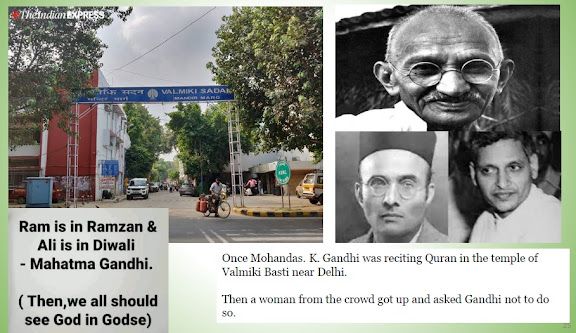ONE NATION - ONE ELECTION
Link for Government of India Web site: https://onoe.gov.in/index
After
Independence, One Nation and One Election concept was very much in vogue till
1967. Lok Sabha and State Assembly Elections were held simultaneously in the
years 1951 - 52, 1957, 1962 and 1967 and this cycle was distrupted due to
premature dissolution of State Assemblies in 1968 - 69 and of Lok Sabha in 1970
onwards.
Frequent
elections affect economic growth, investment decisions apart from temporary
stoppage of welfare schemes and other developmental activities - not to speak of
disruption of supply chains and production cycles.
Above all
holding simultaneous elections would reduce the massive expenditure incurred
for conduct of such frequent elections.
These
frequent elections had resulted in heavy strains on our security forces,
electoral staff to be deployed etc. Such frequent elections had resulted in
avoidable political disputes between contesting candidates and their political
parties. Even Court cases could have been reduced with the one nation one
election.
We have 28 States and 8 Union Territories totallying
36 numbers and 1 Lok Sabha for conduct of simultaneous elections.
Pakistan, Nepal, Sweden, Belgium etc. have one nation
- one election in their respective countries and to restore the pre - 1967
position should be an welcome move.
Since 2014, Narendra Modi, who was then Chief Minister
of Gujarat, has been espousing simultaneous elections stating that it will reduce wastage of public money and will
ensure the smooth flow of development work, which otherwise gets arrested when
the model code of conducts is in force.
A high
level committee under the chairmanship of former president of india Ram Nath
Kovind was constituted for the purpose of implementing one nation one election
and on 14th March 2024 he had submitted 18,000 pages long report recommending to
start the process from 2029 elections. These requires a total of 18 amendments
to the Constitution, most importantly Article 83 (concerning duration of the
Houses of the Parliament) and Article 172 (concerning duration of the state
legislative assemblies) are required.
The bill
for one nation and one election was introduced in Lok Sabha on December 17,
2024 and due to lack of 2/3 support, the bill was referred to 39 member joint
parliamentary committee to examine the Constitution (129 Amendment) Bill, 2024
and the amendments to the Government of Union Territories Act, 1963.
The Opposition Parties are against this one nation - one election quoting that such a step would result in national issues overshadowing regional and state specific issues and that simultaneous elections may create a system where National political parties would have a significant advantage over regional parties. Further they argue that frequent elections hold lawmakers accountable, while fixed terms may provide unwarranted stability without performance scrutiny challenging democratic principles.
As constitutional amendments
concerning the term of the state legislative assemblies under Article 172 can
be carried out without ratification by state, Opinions of States did not matter
thereby such a move hitting heavily on the concept of federalism.
But,
considering all aspects, Modi's Government's move to have one nation - one
election is in the interest of Nation - looking above the party politics.
LET US HOPE MODI'S VISION OF ONE NATION AND ONE ELECTION COMES INTO FORCE.



Comments